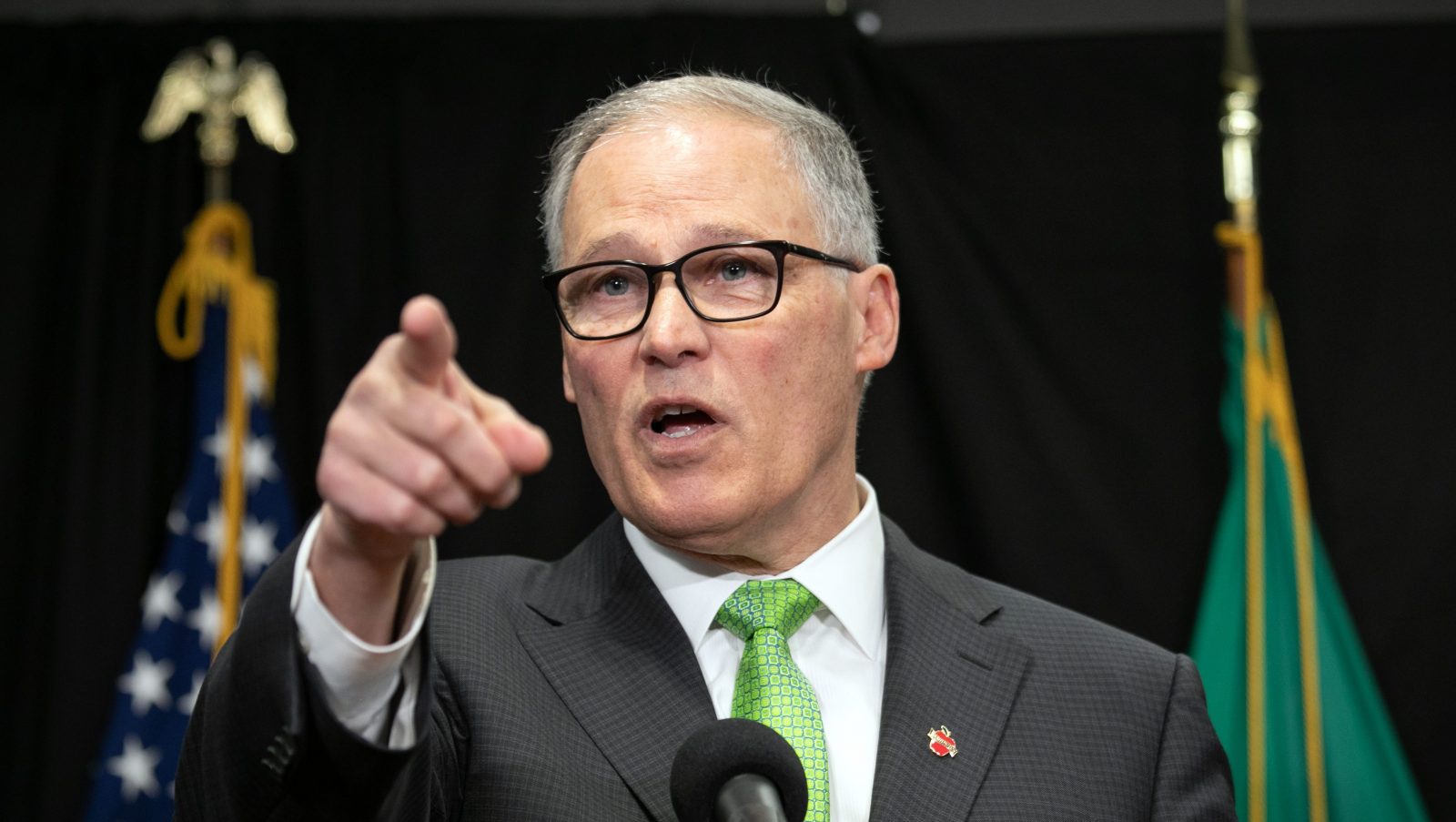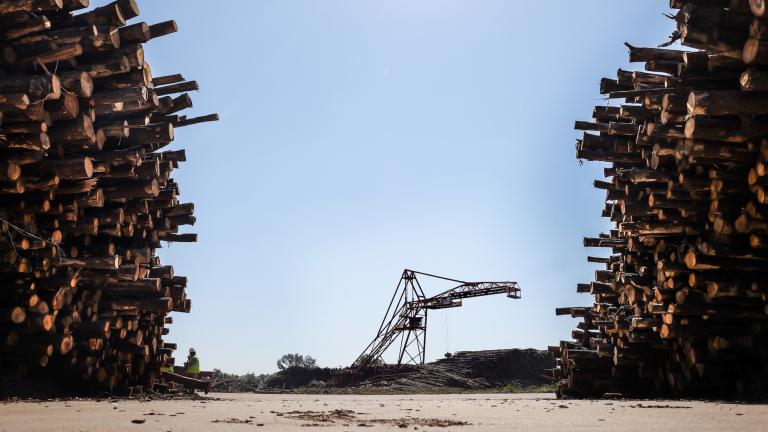Jay Inslee, the Democratic governor of Washington state, distinguished himself as a presidential candidate last year by making climate change the foundational building block of his platform. Inslee has been out of the 2020 race for almost eight months now, but his green legacy and his team of climate wonks are still thriving.
On Wednesday, several key members of the governor’s presidential climate team, the crew that helped Inslee pump out hundreds of pages of policy proposals in a matter of months last year, announced that they’re forming a nonprofit called Evergreen to shape Democratic climate politics in the coronavirus era. Evergreen kicked things off by unveiling a green stimulus plan dubbed the Evergreen Action Plan that revamps Inslee’s proposals for the unique, pandemic-ravaged moment we’re in.
Evergreen’s bigger aim is to build out a platform that can be used by presumptive nominee Joe Biden and Democrats in Congress to keep climate policy on the front burner in the aftermath of the coronavirus crisis. Evergreen already sent its 85-page action plan to Biden’s team, in addition to the offices of House Speaker Nancy Pelosi and Senate Minority Leader Chuck Schumer and the House and Senate climate crisis committees.
“This is a critical juncture for climate policy, especially as Congress is debating stimulus,” Jared Leopold, formerly senior communications advisor for Inslee and a member of the new initiative, told Grist. “It’s clear that the next president and Congress will have to revitalize the economy coming out of this health and economic crisis, and we think building a clean energy economy that’s oriented around the future is one of the best ways to put people to work and to address the climate crisis that can’t wait any longer.”
The plan was written by former Inslee campaign staffers Sam Ricketts, Bracken Hendricks, and Maggie Thomas (who joined Elizabeth Warren’s team after Inslee dropped out). Inslee himself is not directly affiliated with the new group, but his fingerprints are all over its proposals.
The plan contains a 12-part roadmap to revitalize the economy and address the climate crisis simultaneously and breathes new life into many of Inslee’s greatest hits from his campaign. The plan is even more comprehensive than Inslee’s campaign proposals, which were already borderline encyclopedic. It includes a regulatory strategy to transition the U.S. off of fossil fuels and onto renewable energy, a blueprint for mobilizing global climate action beyond what’s called for in the Paris Agreement, and a proposal to establish a climate conservation corps, which would put young Americans to work on sustainability solutions at home and abroad.
The Evergreen Action Plan also contains some ideas that didn’t make it into Inslee’s campaign proposals. For example, Ricketts, Hendricks, and Thomas make a case for the establishment of a White House Office of Climate Mobilization, similar to the World War II-era Office of War Mobilization, that would work with existing White House offices to enforce the president’s climate agenda across the entire federal government. Warren’s influence is evident in the plan, too. Her Blue New Deal proposal, aimed at protecting oceans and the flora and fauna living in them from climate change, has its own subsection.
Back in the Before Times, when more than 20 Democratic candidates were running for president, support for the Green New Deal was the de facto litmus test for whether a candidate was serious about climate change or not. Now, times have changed. The country is facing a historic recession, and economic recovery is the name of the game. But that doesn’t mean that the public’s appetite for climate policy has changed.
Democrats tried to attach climate conditions to the federal government’s airline bailouts in the recent coronavirus relief package, but President Trump and Senate Republicans blocked those efforts. Democrats might have more success incorporating climate policy into future economic stimulus legislation if the Senate or presidency flips blue in November. The question then is, will a President Biden seek to make incremental progress on climate change as the economy recovers, or will he go all in on the kind of sweeping green stimulus bill outlined in the Evergreen Action Plan?
“We feel good about the momentum behind this issue, and we think it’s an issue that can galvanize supporters around the country,” Leopold said. “I think it’s a smart issue for any candidate to lean into.”




